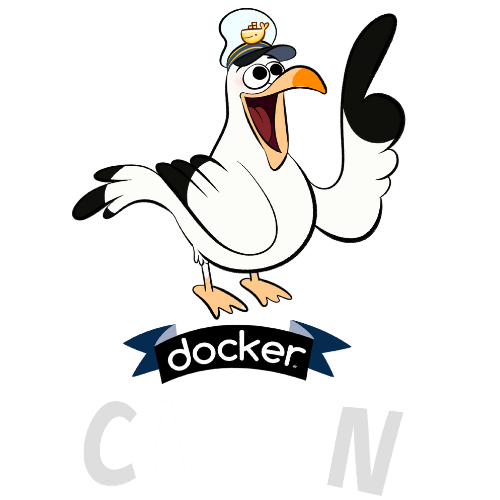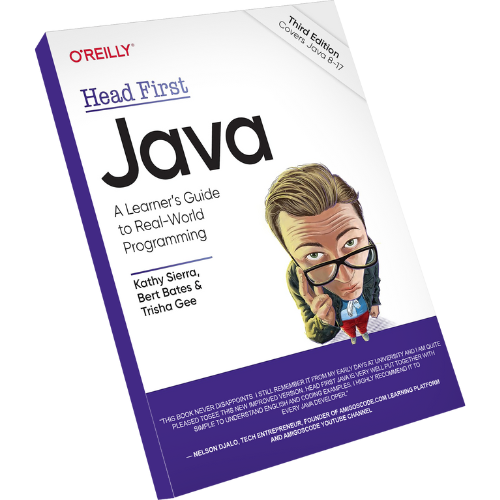
Back to courses
Mastering Kubernetes
In-depth Kubernetes training for container orchestration in modern application development
Level: Mid & Senior Engineers

Nelson
Course by
Nelson
The tech stack you will in this course
 kubernetes
kubernetes docker
docker terminal
terminal bash
bash minikube
minikubeWhat you'll learn
Setup and Installation
Exploring k8s Cluster
Pods
Kubectl
Deployments
Services
Ready to dive into the world of Kubernetes, the leading open-source container orchestration engine? Welcome to the comprehensive Kubernetes course. Kubernetes, or K8s, has revolutionized the way we deploy, scale, and manage applications, making it a must-know tool for modern developers and DevOps engineers.
In this course, you'll gain a deep understanding of Kubernetes and its use cases. You'll learn how K8s works and how to use it, exploring all the main components like Pods, Deployment, Services, ConfigMap, Secrets, Volumes, Service Discovery, Jobs, RBAC, and more. The course is designed to be practical, and we'll go through a real-world use case where we'll deploy a full-stack application using a microservices architecture.
- Kubernetes Architecture: Dive into the underlying structure and operations of Kubernetes. Learn about its components, their interactions, and how Kubernetes orchestrates containers.
- Docker Images and Containers: Understand Docker Images and Containers, the building blocks of Dockerized applications. Learn how to create, manage, and deploy them.
- Volumes and Networking: Explore how Kubernetes manages persistent data using Volumes and enables communication between containers with its networking capabilities.
- Debugging and Security: Master essential techniques to troubleshoot your Kubernetes containers and ensure their security. Learn about Kubernetes security best practices and how to implement them.
- Best Practices: Get acquainted with industry-standard practices for using Kubernetes. Learn about common patterns, practices, and conventions for effective and efficient use of Kubernetes.
Who is the course for?
This course is designed for individuals who are keen to dive into the world of Kubernetes, a powerful open-source system for managing containerized applications in a clustered environment. Whether you're a beginner just starting out in the tech industry or an experienced developer looking to expand your skill set, this course is tailored to meet your needs.
If you're passionate about learning new technologies and aspire to master container orchestration, this course is for you. It's perfect for those who want to understand how to manage, scale, and deploy applications in a Kubernetes environment. Don't worry if you're new to Kubernetes; we'll start from the basics and gradually guide you through its more complex aspects. This course is not just about learning; it's about gaining practical skills that you can apply in real-world scenarios.
Full Stack Application Using Microservices Architecture
Career with Kubernetes
In the dynamic world of cloud computing and microservices, Kubernetes has become an indispensable tool for container orchestration. Acquiring proficiency in Kubernetes can significantly amplify your career trajectory in the tech industry. Here's how this course can propel your career:
- Unleash New Job Opportunities: Kubernetes, being the de facto standard for container orchestration, is a highly sought-after skill. Mastery in Kubernetes opens up a plethora of roles such as Kubernetes Administrator, DevOps Engineer, Cloud Architect, and Site Reliability Engineer, among others.
- Boost Your Earning Potential: As organizations increasingly adopt cloud-native technologies, professionals with Kubernetes expertise are in high demand. This demand often translates into lucrative compensation packages, enhancing your earning potential.
- Accelerate Your Career Progression: If you're already in a tech role, Kubernetes skills can fast-track your career growth. You'll be equipped to handle complex, large-scale deployments and orchestration challenges, potentially leading to advanced roles and leadership positions.
- Stay Ahead of the Curve: The tech landscape is constantly evolving, with Kubernetes at the forefront of containerized deployment and management. By mastering Kubernetes, you'll stay relevant, future-proof your skills, and be in a position to leverage emerging opportunities in the cloud-native ecosystem.
Course Curriculum
This course has 18 sections including exercises
Getting Started
1 - Join the Community
2 - Repo with all examples for this course
3 - What is Kubernetes
4 - Master and Control Plane
5 - Worker Nodes
6 - Running Kubernetes Clusters
7 - Installing Docker
8 - Installing Minikube
9 - Installing Kubectl
10 - Kubernetes Hello World
11 - Newsletter
Exploring k8s Cluster
Pods
1 - Pods
2 - Imperative vs Declarative Management
3 - Create pods Imperative Command
4 - Create pods Using Declarative Configuration
5 - Pod yaml config Overview
Kubectl
1 - Create and Delete Resources
2 - List Resources
3 - Kubectl Describe
4 - Formatting Output
5 - Logs
6 - Shell Access To A Running Pod
7 - Access Pod via Port Forward
8 - List All Resource Types
9 - Kubectl Cheatcheat
Deployments
1 - Dont use pods on its own
2 - Deployments Overview
3 - Creating Deployment
4 - Managing Deployments
5 - Replica Sets Overview
6 - Listing Replicate Sets
7 - Port Forward Deployments
8 - Scaling Deployment Replicas
Deployment and Rolling Updates
1 - Rolling Updates
2 - Rolling Updates In Action
3 - Rollbacks
4 - Manage Your Cluster Using Declarative Approach
5 - Revision History Limit
6 - Configure Deployment Rolling Strategy
7 - Pausing and Resuming Rollouts
Services
1 - Kubernetes Service
2 - Customer Microservice Deployment
3 - Exercise
4 - Exercise Sol
5 - Mircoservice Communication using POD IP address
6 - ClusterIP Service
7 - Inspecting ClustreIP Service and Endpoints with Kubectl
8 - Cluster IP Service In Action
9 - NodePort Service
10 - Createting NodePort Service
11 - Accessing API with NodePort Service
12 - NodePort with Random Port
13 - Accessing NodePort Service Using Cluster IP Address
14 - LoadBalancer Service
15 - Exercise
16 - Full Stack App exposed with LoadBalancer Service
17 - Default Kuberenetes Service
Labels, Selectors and Annotations
1 - Labels
2 - Exercise
3 - Selectors
4 - Labels and Selectors with Objects
5 - Querying with In and NotIn
6 - Annotations
Service Discovery
1 - Service Discovery and DNS
2 - CoreDNS & DNS Resolution
3 - Accessing services from Different namespaces
4 - Endpoints
5 - Kube-Proxy
Volumes & Storage
1 - Intro to Volumes
2 - EmptyDir Volume Part 1
3 - EmptyDir Volume Part 2
4 - HostPath Volume
5 - Other Volume Types
6 - PersistentVolumes
7 - Persistent Volume SubSystem
8 - Create PersistentVolume and PresistentVolumeClaim
9 - PersistentVolume and PresistentVolumeClaim in Action
ConfigMaps
1 - What are ConfigMaps
2 - Creating ConfigMap Declaratively
3 - ConfigMaps Using Imperative Command
4 - ConfigMaps and Environment Variables
5 - ConfigMaps and Volumes
6 - Mount Multiple ConfigMaps in same Folder
7 - Mount single file
Secrets
1 - Kubernetes Secrets
2 - GenericSecret
3 - Consuming Secrets with Volumes and Environment Variables
4 - Secrets are not Secrets in Kubernetes
5 - ImagePullSecrets
6 - Secret Types
Namespaces
1 - Namesapaces
2 - Creating Namespaces
3 - Using Namespaces
4 - Kubens
5 - NS Cross Communication and Network Policies
Health Checks
1 - Kubernetes Health Checks
2 - Liveness Probe
3 - Readiness Probe
Resource Management
1 - Resource Management
2 - Resource Requests and Limits
3 - Lets max out our cluster
Jobs & Cron Jobs
1 - Running Tasks with Kubernetes
2 - Jobs
3 - CronJobs
DeamonSet
1 - DeamonSet
2 - Lets create Fluentd DeamonSet
StatefulSets
1 - StatefulSets
Questions & Answers
What makes Amigoscode programming courses different from others?
Amigoscode offers unique, practical, and industry-relevant programming courses taught by experienced instructors. We focus on real-world applications, giving you the skills you need to excel in your career.
Can I purchase your courses through my company's training budget?
Yes, many of our students purchase our courses through their company's training budget. Our courses are considered a valuable investment in employee skill development, and they can be expensed as part of your company's training and development initiatives.
How can Amigoscode courses help me advance my programming career?
Our courses are designed to bridge the gap between theory and practice. You'll gain hands-on experience, work on real projects, and build a portfolio that will impress employers and clients, opening up new opportunities for career growth.
Do you offer any certifications upon course completion?
Yes, we provide certificates of completion for all our courses. These certificates are recognized in the industry, and they can help you showcase your skills to potential employers or clients.
Can I access the course material at my own pace?
Absolutely! Amigoscode courses are self-paced, allowing you to learn at a speed that suits your schedule. You can revisit the material whenever you need, and you have lifetime access to the course content.
Do I need prior programming experience to enroll in your courses?
No, our courses are designed to accommodate all levels of learners. Whether you're a beginner looking to start your programming journey or an experienced developer wanting to enhance your skills, we have courses suitable for you.
What kind of support do I get during the course?
We provide extensive support to our students through discord. You'll have access to a community of learners and can ask questions, share your progress, and collaborate with fellow students. In addition, our instructors are available to help with any challenges you encounter during the course.
What is your refund policy?
We offer a 15-day refund policy. If you're not satisfied with your course within the first 15 days after purchase, we will provide a full refund, no questions asked. Your satisfaction is our priority.
Featured on




Mastering Kubernetes
Engage in a dynamic and interactive learning experience as you complete exercises and projects.
